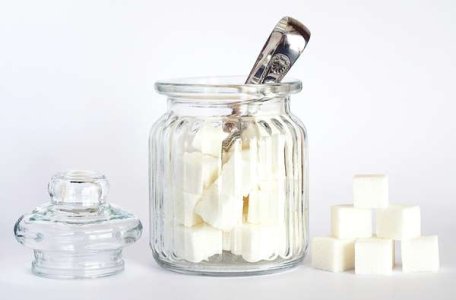Shocking sugar spike in popular drinks prompts calls for new tax
By
KenAlunan
- Replies 4
As we navigate the aisles of our local supermarkets, many of us are blissfully unaware of the hidden sugars lurking in our favourite beverages.
But a recent revelation about the sugar content in popular soft drinks Fanta and Sprite has set off alarm bells, prompting health experts to call for a firmer hand from the government in regulating Australia's food and drinks industry.
In a move that seems to go against the current health-conscious reform, Coca-Cola, the manufacturer of both Fanta and Sprite, has increased the sugar content in these drinks significantly.
This comes after initial efforts to reduce sugar levels, with Fanta's sugar content jumping from 4.5 grams per 100ml to a startling 7.2 grams per 100ml.
Similarly, Sprite now contains 6.9 grams of sugar per 100ml, up from 4.9 grams.
To put this into perspective, a single 600ml bottle of Fanta now nearly reaches the World Health Organisation's recommended daily sugar intake limit for adults.

This sugar surge has reignited the debate over the effectiveness of voluntary industry pledges to improve the nutritional quality of their products. The Australian government's 'partnership reformulation program’, which began in July 2020, aimed to encourage food companies to voluntarily reduce sugar, sodium, and saturated fats.
However, with only four manufacturers signing up since 2018, the program's impact has been minimal.
These considered, the Australian Beverages Council's pledge to cut sugar in beverages by 20 per cent by 2025 now seems less like an achievable goal.
The recent increases in sugar content of the two drinks has implications for public health, especially considering the obesity epidemic and related health issues that plague our nation.
Prof Steve Robson, President of the Australian Medical Association, has voiced his concern, stating that the industry's self-regulation is failing and that it's time for the government to step in.
He advocates for a sugar tax on the food and beverage industry, which has been implemented in over 100 countries and jurisdictions worldwide.
Research suggests that a 20 per cent tax on sugar-sweetened beverages in Australia could lead to significant reductions in heart disease, type 2 diabetes, and strokes over 25 years, not to mention the potential financial benefits for health promotion campaigns and easing the burden on our healthcare system.
Support for such a tax isn't limited to individual health professionals. Organisations like the Cancer Council, Heart Foundation, Food for Health Alliance, and Australian Dental Association are all on board, recognising the detrimental impact of sugary drinks on our health.
Dr Adyya Gupta from Deakin University's Global Centre for Preventive Health and Nutrition has expressed her dismay at the sugar increase, especially given the well-known role of sweetened beverages in contributing to unhealthy diets.
She said, ‘It’s absolutely appalling to see that it’s increased.’ She punctuated this point by saying, ‘An Australian adult is consuming about 58 to 60 grams of sugar per day, with sugar-sweetened beverages the largest source.’
Beyond a sugar tax, experts are calling for a comprehensive approach to tackle obesity and diet-related health issues.
For Dr Gupta, this includes prioritising health in trade agreements and policy, regulating advertising more effectively, improving food labelling, and strengthening dietary guidelines.
‘I am totally against putting the onus on the individual because it’s just impossible given everything has so much sugar in it, and improving the food environment means implementing measures holding the industry to account,’ she added.

It's crucial to stay informed about these developments. Not only do they affect our wallets, but they also have a profound impact on our health and the health of future generations.
With a potential sugar tax on the horizon, we may see changes in the pricing of our favourite drinks, but the real cost of inaction could be far greater.
Are you looking for a healthier choice? Diet soft drinks may not be as good of an alternative as they seem.
What are your thoughts on the sugar content in beverages and the idea of a sugar tax? Have you noticed changes in your health due to sugar consumption? Let us know in the comments below!
But a recent revelation about the sugar content in popular soft drinks Fanta and Sprite has set off alarm bells, prompting health experts to call for a firmer hand from the government in regulating Australia's food and drinks industry.
In a move that seems to go against the current health-conscious reform, Coca-Cola, the manufacturer of both Fanta and Sprite, has increased the sugar content in these drinks significantly.
This comes after initial efforts to reduce sugar levels, with Fanta's sugar content jumping from 4.5 grams per 100ml to a startling 7.2 grams per 100ml.
Similarly, Sprite now contains 6.9 grams of sugar per 100ml, up from 4.9 grams.
To put this into perspective, a single 600ml bottle of Fanta now nearly reaches the World Health Organisation's recommended daily sugar intake limit for adults.

Soft drink consumption in Australia has been declining since 2010. Photo Source: Pexels / Emre Akyol
This sugar surge has reignited the debate over the effectiveness of voluntary industry pledges to improve the nutritional quality of their products. The Australian government's 'partnership reformulation program’, which began in July 2020, aimed to encourage food companies to voluntarily reduce sugar, sodium, and saturated fats.
However, with only four manufacturers signing up since 2018, the program's impact has been minimal.
These considered, the Australian Beverages Council's pledge to cut sugar in beverages by 20 per cent by 2025 now seems less like an achievable goal.
The recent increases in sugar content of the two drinks has implications for public health, especially considering the obesity epidemic and related health issues that plague our nation.
Prof Steve Robson, President of the Australian Medical Association, has voiced his concern, stating that the industry's self-regulation is failing and that it's time for the government to step in.
He advocates for a sugar tax on the food and beverage industry, which has been implemented in over 100 countries and jurisdictions worldwide.
Research suggests that a 20 per cent tax on sugar-sweetened beverages in Australia could lead to significant reductions in heart disease, type 2 diabetes, and strokes over 25 years, not to mention the potential financial benefits for health promotion campaigns and easing the burden on our healthcare system.
Support for such a tax isn't limited to individual health professionals. Organisations like the Cancer Council, Heart Foundation, Food for Health Alliance, and Australian Dental Association are all on board, recognising the detrimental impact of sugary drinks on our health.
Dr Adyya Gupta from Deakin University's Global Centre for Preventive Health and Nutrition has expressed her dismay at the sugar increase, especially given the well-known role of sweetened beverages in contributing to unhealthy diets.
She said, ‘It’s absolutely appalling to see that it’s increased.’ She punctuated this point by saying, ‘An Australian adult is consuming about 58 to 60 grams of sugar per day, with sugar-sweetened beverages the largest source.’
Beyond a sugar tax, experts are calling for a comprehensive approach to tackle obesity and diet-related health issues.
For Dr Gupta, this includes prioritising health in trade agreements and policy, regulating advertising more effectively, improving food labelling, and strengthening dietary guidelines.
‘I am totally against putting the onus on the individual because it’s just impossible given everything has so much sugar in it, and improving the food environment means implementing measures holding the industry to account,’ she added.
Key Takeaways
- Health experts have renewed calls for a sugar tax following an increase in sugar content in Fanta and Sprite, against the trend of sugar reduction pledges in the beverage industry.
- Coca-Cola has reverted to increasing the sugar levels in their drinks Fanta and Sprite, after initially reducing the sugar content in line with a voluntary industry pledge.
- The Australian Medical Association president argues that the voluntary sugar reduction program is failing and insists on implementing a sugar tax to fund health promotion and alleviate pressure on the healthcare system.
- Advocates suggest a comprehensive approach to tackle obesity, including a sugar tax, regulation of advertising, improved food labelling, and stronger dietary guidelines, while not placing the burden solely on individuals.
It's crucial to stay informed about these developments. Not only do they affect our wallets, but they also have a profound impact on our health and the health of future generations.
With a potential sugar tax on the horizon, we may see changes in the pricing of our favourite drinks, but the real cost of inaction could be far greater.
Are you looking for a healthier choice? Diet soft drinks may not be as good of an alternative as they seem.
What are your thoughts on the sugar content in beverages and the idea of a sugar tax? Have you noticed changes in your health due to sugar consumption? Let us know in the comments below!








